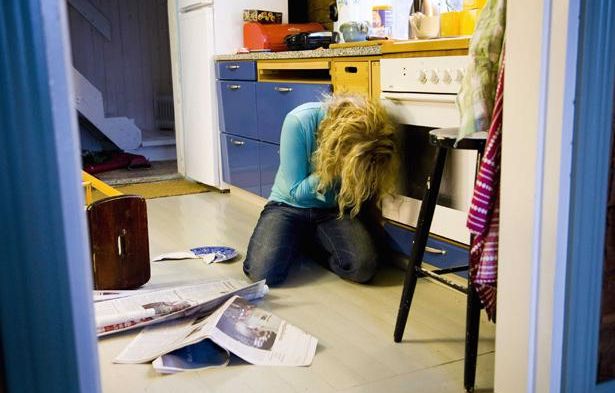“Specialized poles” in the courts, emergency measures taken in twenty-four hours… The Keeper of the Seals, Éric Dupond-Moretti, must detail on Monday a series of measures to fight against domestic violence following the handing over of a parliamentary report to the Chancellery.
These measures, which will be the subject of decrees or will incorporate bills in the coming weeks and months, were announced in March by Prime Minister Élisabeth Borne as part of her plan for gender equality, “great cause” of the quinquennium.
Specialized centers in the 164 courts of France
The framework of the “centres specializing in domestic violence” which will be set up in the 164 courts in France will be fixed by decree. Each pole will include a team coordinated by magistrates from the seat and the referring prosecutor’s office, but the heads of jurisdictions will have the hand to adapt their poles according to local specificities, by choosing for example to devote or not dedicated hearings.
The government also wants to allow a judge to pronounce, in the event of “extreme urgency”, a protection order in twenty-four hours, demanded for a long time. The deadlines for these orders authorizing, for example, the eviction of the violent spouse or a ban on contact, had been reduced to six days in 2019 (45 days on average previously). This new “immediate” procedure will be temporary: it should then be re-examined, in a contradictory manner, by a judge.
207,743 victims of domestic violence in 2021
The Ministry of the Interior has identified 207,743 victims of domestic violence in France in 2021, mainly women, an increase of 21% compared to 2020. 122 were killed by their spouse or ex-spouse this same year, according to the ministry. . About forty women have already been killed since the beginning of the year according to the associations.
Figures that the authorities are unable to bring down, despite the multiplication of measures taken, in particular since the Grenelle of 2019, notes in the preamble the report aimed at “improving the judicial treatment of domestic violence” which will be submitted in the morning to Éric Dupond -Moretti and the Minister for Equality between Women and Men, Isabelle Rome.
Work further on the “necessary global vision” and “coordination”
The two authors of the report, Emilie Chandler (Renaissance MP for Val-d’Oise) and Dominique Vérien (Senator for Yonne, UDI), begin by noting the doubling of complaints since 2016 “in a context of freedom of speech and improvement of the reception conditions for victims by the police and gendarmerie”, as well as a “faster” judicial response (doubling of convictions before the criminal courts, +218% of removal measures between 2017 and 2021) , even if progress is not “at the same level” across the country.
In their recommendations, they underline the need to further work on the “necessary global vision” and the “coordination” between the different actors – shortcomings in the follow-up of violent and repeat offender spouses have been revealed during several femicides in recent years.
They recommend the creation of a file containing information on the perpetrators (on which the Chancellery and the Interior are already working), and better care for violent men (dedicated prevention campaigns, follow-up committee for releases from prison …), victims and children, notably by proposing the creation of a “status” of ad hoc administrator.
Soon a new “anti-reconciliation” bracelet
Progress is still to be made in terms of training – the “process at work” in family violence is still often misunderstood and therefore poorly detected, notes the report.
The mandatory hazard assessment grids are “far from being” systematically completed, underline the parliamentarians, also suggesting to take inspiration from Spain, a pioneering country in this area, and to set up a file evaluating “ on the basis of an algorithmic calculation” the risk of acting out.
The report also proposes to further relax the procedures for issuing “serious danger telephones”. Nearly 3,500 are active (+471% since 2019) but they remain three times less awarded than in Spain.
As for the “anti-reconciliation bracelets” (1,000 active), which have also proven themselves in Spain, they still have many technical problems, underlines the report. A “new generation” bracelet will be deployed next month, promises the Chancellery.

